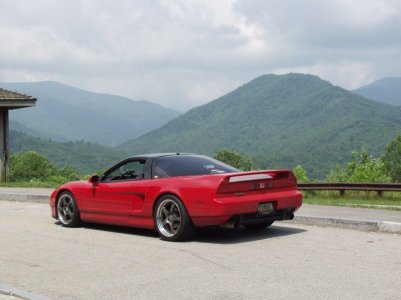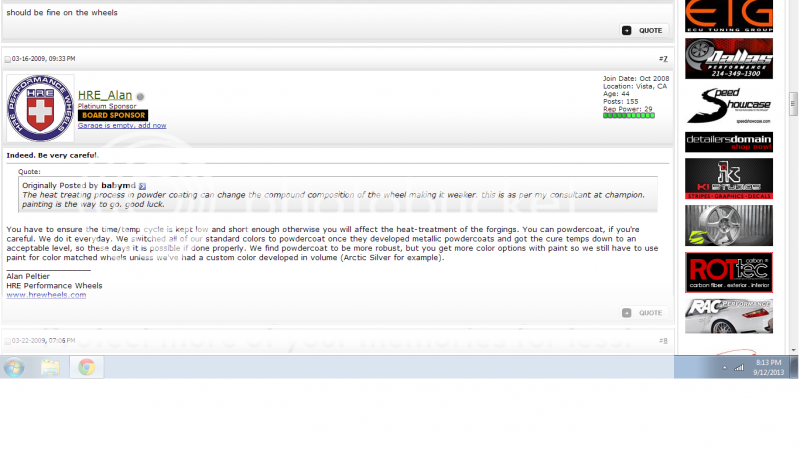Sounds like Enkei is just giving CYA answers, but I don't blame them. I wouldn't be surprised if they gave the same response if asked about plastidip.
+1!
I guess heat damages anything, but sounds to me like people want to know to what degree does powder coating degrade wheel performance/durability. Those in the know (in the wheel industry) surely must have some hard numbers from studies/tests?
Flow forging of aluminum to increase its structual properties takes place at close to 1000 degrees to change the molecular grain of the raw aluminum. No way heating them to 300-400 degrees for a few minutes is going to realign the grain created in the original forging process.










